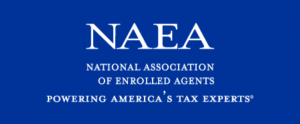Frequently Asked Questions
How to submit documents and make payment for your services?
Click here to see how you can submit your documents and make payment for your services.What is an Enrolled Agent?
An Enrolled Agent (EA) is a federally licensed tax practitioner who has proven technical expertise in the field of taxation. Enrolled agents are empowered by the U.S. Department of the Treasure to represent a taxpayer before all administrative levels of Internal Revenue Service for audits, collections, and appeals.How can Enrolled Agent help me?
Enrolled Agents advise, represent, and prepare tax returns for individuals, partnerships, corporations, estates, trusts, and any entities with tax-reporting requirements. Enrolled Agents’ expertise in the continually changing field of taxation enables them to effectively represent taxpayers audited by the IRS.What are the differences between Enrolled Agents and other tax professionals?
Only Enrolled Agents are required to demonstrate to the IRS their competence in matters of taxation before they may represent a taxpayer before the IRS. Unlike attorneys and CPAs, who may or may not choose to specialize in taxes, all Enrolled Agents specialize in taxation. Enrolled Agents are the only taxpayer representatives who receive their right to practice from the U.S. government (CPAs and attorneys are licensed by the states).How to choose Tax Preparer for preparing your tax returns?
It’s important for taxpayers to find qualified tax professionals if they need help preparing and filing their tax returns. Unqualified tax preparers may overlook legitimate deductions or credits that could cause clients to pay more tax than they should. Unqualified preparers may also make costly mistakes causing their clients to incur assessed deficiencies, penalties, and interest. Here are some suggestions to consider when hiring a tax professional:
Here are a few points to keep in mind when choosing someone else to prepare your return:
- Check the person’s qualifications. Ask if the preparer is affiliated with a professional organization that provides its members with continuing education and resources and holds them to a code of ethics. New regulations effective in 2011 require all paid tax return preparers including attorneys, CPAs and enrolled agents to have a Preparer Tax Identification Number.
- Check the preparer’s history. Check to see if the preparer has a questionable history with the Better Business Bureau and check for any disciplinary actions and licensure status through the state boards of accountancy for certified public accountants; the state bar associations for attorneys; and the IRS Office of Professional Responsibility for enrolled agents.
- Find out about their service fees. Avoid preparers who base their fee on a percentage of your refund or those who claim they can obtain larger refunds than other preparers.
- Make sure the tax preparer is accessible. Make sure you will be able to contact the tax preparer after the return has been filed, even after the April due date, in case questions arise.
- Provide all records and receipts needed to prepare your return. Most reputable preparers will request to see your records and receipts and will ask you multiple questions to determine your total income and your qualifications for expenses, deductions and other items.
- Never sign a blank return. Avoid tax preparers that ask you to sign a blank tax form.
- Review the entire return before signing it. Before you sign your tax return, review it and ask questions. Make sure you understand everything and are comfortable with the accuracy of the return before you sign it.
- Make sure the preparer signs the form and includes their PTIN. A paid preparer must sign the return and include their PTIN as required by law. Although the preparer signs the return, you are responsible for the accuracy of every item on your return. The preparer must also give you a copy of the return.
Are you associated with any professional organization?
Yes. We are associated with National Association of Enrolled Agent.

